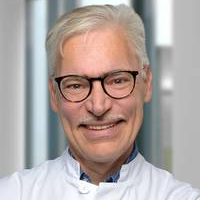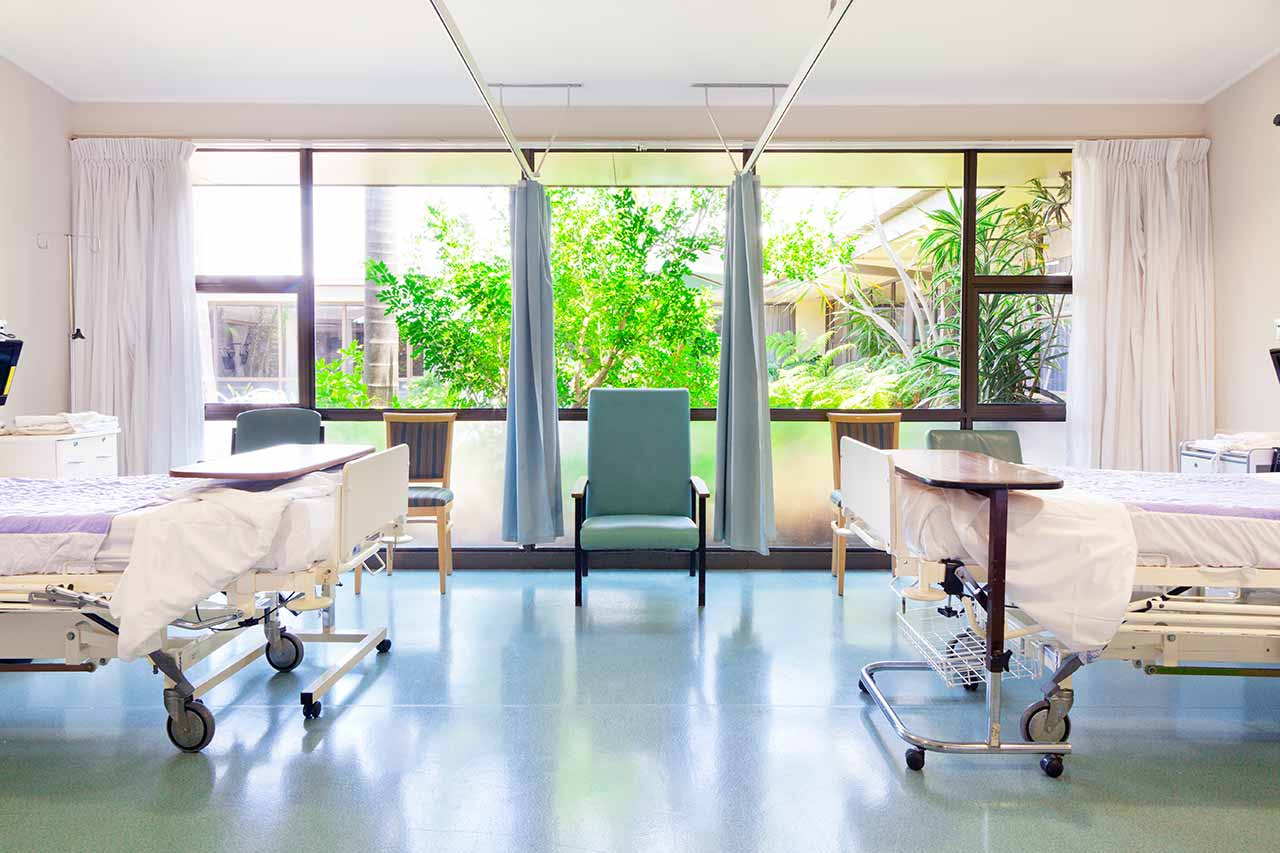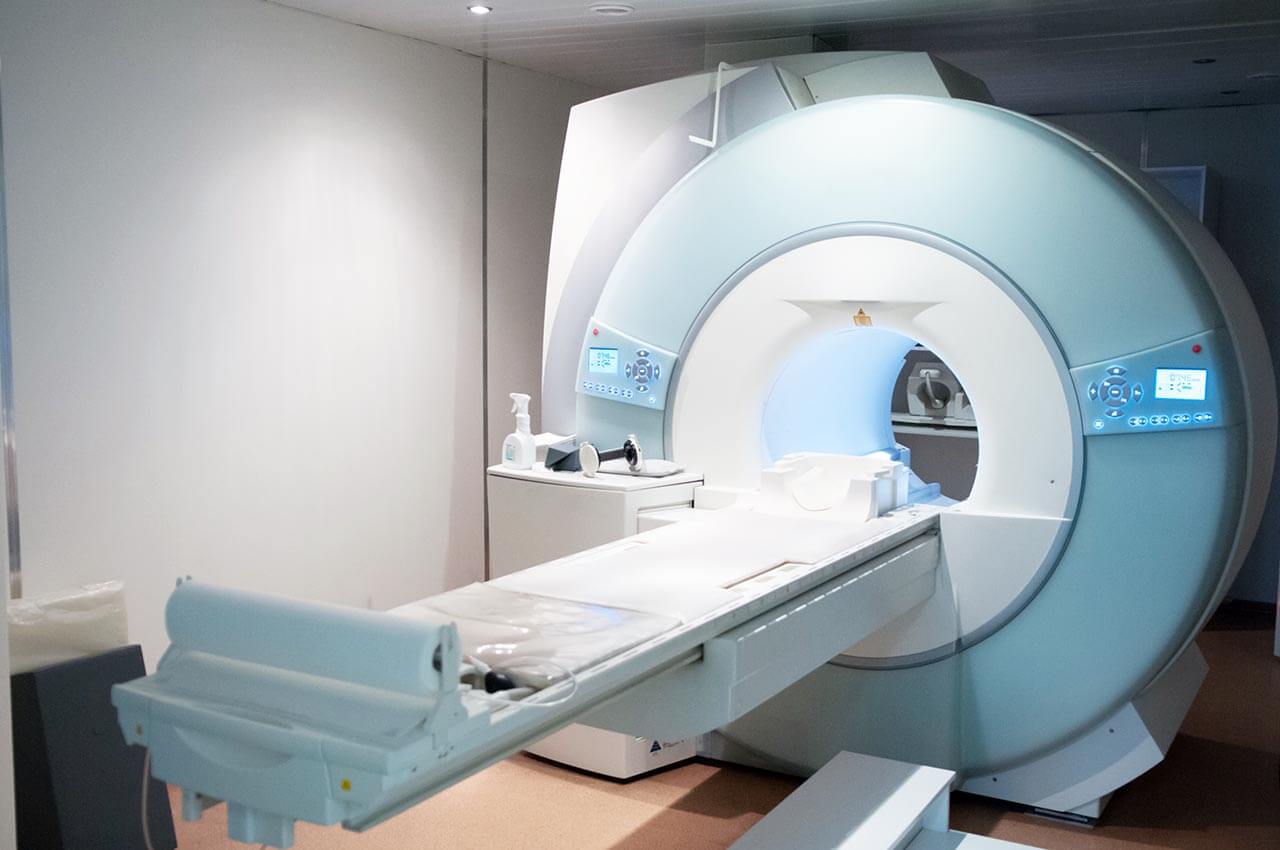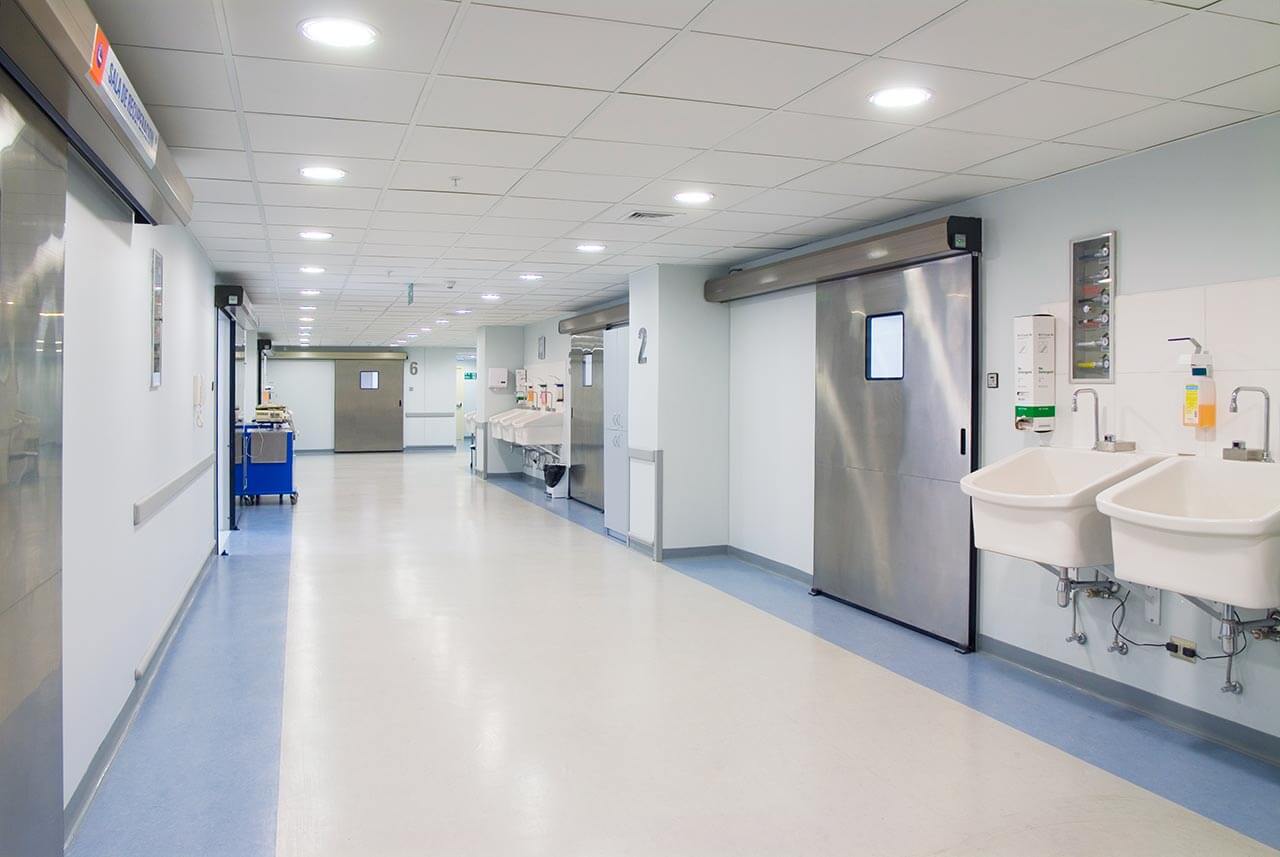
The program includes:
- Initial presentation in the clinic
- clinical history taking
- review of medical records
- physical examination
- laboratory tests:
- complete blood count
- biochemical analysis of blood
- TSH-basal, fT3, fT4
- tumor markers
- inflammation indicators (CRP, ESR)
- indicators blood coagulation
- CT/MRI of the head, neck
- general otolaryngological examination
- laryngoscopy with biopsy
- preoperative care
- resection of nasopharyngeal cancer
- histologically and immunohistochemically
examination of the removed tissues - symptomatic treatment
- control examinations
- the cost of essential medicines and materials
- nursing services
- full hospital accommodation
- explanation of future recommendations
Required documents
- Medical records
- MRI/CT scan (not older than 3 months)
- Biopsy results (if available)
Service
You may also book:
 BookingHealth Price from:
BookingHealth Price from:
About the department
The Department of Adult and Pediatric Otolaryngology, Facial Plastic Surgery at the University Hospital Saarland Homburg offers the full range of services in these areas, using the very latest achievements in university medicine. The focus of the department's team of doctors is on patients with diseases of the ear, throat, and nose, benign and malignant head and neck tumors, as well as balance disorders. The department successfully performs plastic surgery for patients with appearance defects in the face and neck, such as otoplasty, septorhinoplasty, blepharoplasty, and reconstructive plastic surgery after head and neck tumor resection. The specialists of the medical facility are deservedly proud of their professional skills in cochlear implantation in adults and children. The department's successful clinical activities are recognized by many quality certificates, including the ISO 9001:2015 certification, a certificate from the German Society for Skull Base Surgery, and a certificate from the German Society for Ultrasound in Medicine. It is important for the department's doctors to provide each patient with the most effective but, at the same time, sparing treatment, taking into account their individual needs and wishes. The department is headed by Prof. Dr. med. Bernhard Schick.
The department's team of doctors has long experience in treating patients with middle ear diseases. The most common of these include chronic otitis media, middle ear malformations, tympanic membrane injuries, ear canal stenosis, cholesteatoma, otosclerosis, conductive hearing loss of unknown origin, and acoustic neuromas. The initial stage of the therapeutic process is comprehensive clinical and audiological diagnostics. In some cases, the department's specialists use only conservative therapy, but it is still often impossible to provide high-quality care to a patient without surgery. Should a surgical intervention be required, preference will be given to low-traumatic endoscopic, microsurgical, or laser techniques. The department performs more than 300 middle ear operations annually. As a rule, interventions are performed under general anesthesia, but sometimes local anesthesia can also be used. A surgical approach is provided through a small incision in the external acoustic meatus or behind the auricle. As of today, surgeons working at the medical facility widely use endoscopy-guided surgery that completely excludes ear incisions.
The department successfully implants hearing aids for patients with severe hearing loss. During the diagnostic stage, an attending physician determines the best type of device that can restore hearing as much as possible. The department's specialists use only high-quality and world-famous implantable hearing aids in their work, for example, the Vibrant Soundbridge, BAHA, Bonebridge, and Ponto systems. Surgery to place implantable hearing aids is also performed with the use of endoscopic and microsurgical techniques.
The medical facility is one of the few medical centers in Germany offering patients an innovative treatment method for severe forms of hearing loss, namely cochlear implantation. This therapeutic technique is suitable for both young patients and adults. At the initial appointment with a doctor, a patient receives information about the upcoming treatment. The specialist also prescribes a set of examinations necessary to determine the advisability of the intervention. A diagnostic protocol includes audiometry (tonal and speech), tympanometry, recording of electrically evoked stapedial reflexes, otoacoustic emission, brainstem evoked response audiometry (BERA), subjective and objective promontory testing, and vestibular function testing. If the diagnostic results are satisfactory for cochlear implantation, the department's doctors make a decision to perform the surgery. The department's medical team prefers a comprehensive approach: after the operation, patients receive follow-up treatment, including the technical adjustment of the speech processor, hearing training, and speech processor testing. The final stage of treatment is a program for hearing and speech rehabilitation that will be specially adapted for a child or an adult patient.
A special focus of the department's clinical practice is on treating head and neck cancers. The therapeutic process begins with a medical consultation and comprehensive diagnostics, including high-resolution ultrasound scans and endoscopic procedures. With appropriate indications, a patient will undergo a histological examination, after which an optimal treatment strategy will be developed at the tumor board with the participation of radiation therapists, oncologists, head and neck surgeons, radiologists, and other specialists. The treatment is based on tumor resection surgery with the use of minimally invasive or laser techniques. In many cases, the operation is supplemented by chemotherapy and/or radiation therapy, which are carried out by specialized doctors. The department's patients do not have to worry about aesthetic problems after the resection of their neoplasm, as the department offers the services of a team of highly qualified plastic surgeons who make every effort to get rid of the patient's appearance defects.
It should be noted that many surgical interventions, including those for head and neck tumors, are performed in the department using the innovative da Vinci surgical system, which is known for its precise and miniature instruments ranging in size from 5 to 8 mm. The slave manipulators of the robotic surgeon are equipped with an advanced high-resolution 3D camera with a stereoscopic view. Operations performed with the da Vinci surgical system have a number of advantages, such as minimal pain, minimal blood loss, no scarring, and good aesthetic results.
The department has a modern Sleep Laboratory, where one can be examined and treated for obstructive sleep apnea and snoring. Sleep problems not only worsen a person's quality of life but also lead to disturbances in the functioning of the heart, lungs, and circulatory system. The lack of timely treatment of sleep disorders can provoke the development of acute coronary syndrome, arrhythmias, high blood pressure, elevated pressure in the pulmonary blood vessels, etc. Diagnostic examinations can be performed in the department's laboratory or at home with a special portable screening device for analyzing sleep at home.
The department's key clinical focuses include:
- Adult and pediatric otolaryngology
- Conservative and surgical treatment of ear diseases in adults and children
- Conservative and surgical treatment of external ear diseases
- Middle ear surgery, including the placement of implantable hearing aids (Vibrant Soundbridge, BAHA, Bonebridge, and Ponto systems) and cochlear implantation in children and adults
- Conservative and surgical treatment of diseases of the nasal cavity and paranasal sinuses in adults and children
- Conservative and surgical treatment of chronic diseases of the nasal cavity and paranasal sinuses
- Conservative and surgical treatment of tumors of the nasal cavity and paranasal sinuses
- Conservative and surgical treatment of lacrimal duct diseases: endoscopic transnasal dacryocystorhinostomy
- Conservative and surgical treatment of head and neck tumors
- Minimally invasive surgery
- Laser surgery
- da Vinci robot-assisted surgery
- Microvascular tissue transplantation (from the forearm, chest, back, or thigh) to close defects after surgery
- Reconstructive surgery for facial paralysis
- Chemotherapy and radiation therapy (in cooperation with specialized doctors)
- Conservative and surgical treatment of dizziness (neurotology)
- Multimodal therapy for dizziness and balance disorders, including drug therapy, surgical treatment, physiotherapy, and psychological care
- Treatment of Meniere's disease: drug therapy, cortisone or gentamicin injections into the tympanic cavity, sacculotomy, and vestibular neurectomy
- Surgical treatment and monitoring of patients with cerebellopontine angle tumors (for example, vestibular schwannoma), including balance restoration
- Conservative and surgical treatment of sleep disorders
- CPAP therapy for obstructive sleep apnea and snoring
- Surgical interventions for snoring: nasal septum plastic surgery, conchotomy, and polypectomy
- Conservative and surgical treatment of ear diseases in adults and children
- Head and facial plastic surgery
- Rhinoplasty (nose reshaping)
- Septorhinoplasty (surgery to straighten the nasal septum and nose reshaping)
- Blepharoplasty (surgery to change the shape of the eyelids and eye)
- Keloid scar treatment
- Reconstructive plastic surgery in the face and neck after tumor resection surgery
- Other therapeutic options
Curriculum vitae
Prof. Dr. med. Bernhard Schick studied medicine at the Philipps University of Marburg, where in 1993 he received his doctorate. He had special training in otolaryngology at the Municipal Hospital Fulda, where he has also received a qualification in plastic facial surgery. Prof. Schick was the leading Senior Physician of the Department of Otolaryngology at the University Hospital Saarland in Homburg and the leading Senior Physician at the University Hospital Erlangen. In 1998 he was recognized as a Medical Specialist. In 2003, he had habilitation in otolaryngology and in March 2008 the doctor was appointed a Visiting Professor. Since 01.06.2008, the doctor has been the Head of the Department of Adult and Pediatric Otolaryngology, Facial Plastic Surgery at the University Hospital Saarland Homburg.
After the habilitation, Prof. Schick (in collaboration with the Leibniz Institute for Research on New Materials at the University of Saarland) developed a new transplant for the surgical treatment of hearing impairments. In collaboration with the Department of Biophysics, the professor is engaged in the study of neural monitoring of the inner ear functions.
Photo of the doctor: (c) Universitätsklinikum des Saarlandes
About hospital
The University Hospital Saarland Homburg is the largest hospital in the city of Homburg and the most important medical facility in the region. The hospital, which currently has 30 specialized departments and 20 institutes, was founded in 1947 and operates on the basis of Saarland University. The hospital plays a leading role in medical education, research, and medical care both in the state of Saarland and throughout Germany. With vast experience in serving foreign patients, the medical facility is also widely known in the international medical arena.
The pride of the hospital is state-of-the-art equipment that allows the doctors to perform high-precision comprehensive diagnostics and the most sparing treatment even if a patient has a severe pathology. Patients are offered innovative medicine based on the very latest scientific achievements. At the same time, the hospital offers many therapeutic methods that are used only in leading medical centers in Europe, including da Vinci robot-assisted surgery, CAR T-cell therapy, TAVI and MitraClip catheter-based procedures, innovative laser procedures, etc. Great importance is paid to ethical and social competence. The hospital is constantly improving the work of its medical personnel and infrastructure to provide medical services that meet the highest standards.
As a multidisciplinary medical complex, the hospital offers highly effective treatment of the full range of common diseases as well as rare and severe pathologies. The efforts of the medical staff, which includes over 600 doctors and 2,000 nurses, are focused on the patient and their unique needs and desires. The doctors always devote enough time to personal communication with their patients, provide them with moral support, and are sympathetic to every life situation.
Photo: (с) depositphotos
Accommodation in hospital
Patients rooms
The patients of the University Hospital Saarland Homburg live in comfortable single, double, and triple patient rooms with a modern design. Each room is equipped with an ensuite bathroom with a shower and a toilet, as well as everything else necessary: a comfortable bed, a bedside table, a TV, and a telephone. In addition, enhanced-comfort rooms and specially equipped rooms for people with disabilities are available for the patients.
Meals and Menus
The hospital offers healthy and delicious meals three times a day: buffet breakfast, dinner with a wide choice of dishes for every taste, and a light supper. The menu features dietary and vegetarian dishes. There is also a cafeteria on the territory where one can taste delicious dishes and have a cup of coffee, tea, or some refreshing drinks
Further details
The standard patient rooms include:
Religion
The hospital regularly hosts catholic and evangelical devine services. The services of representatives of other religions are available upon request.
Accompanying person
During an inpatient program, an accompanying person can stay with you in the patient room or in a hotel of your choice.
Hotel
During an outpatient program, you can stay in a hotel of your choice. The managers will help you choose the most suitable options.





